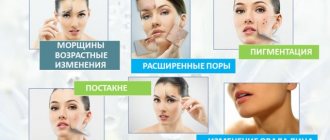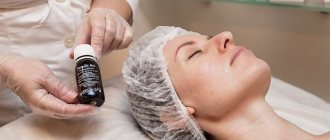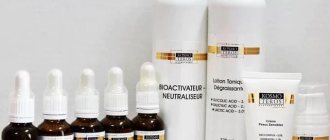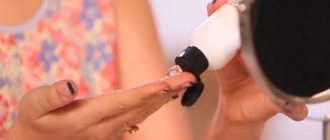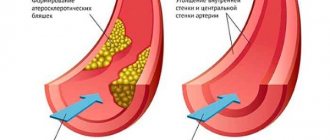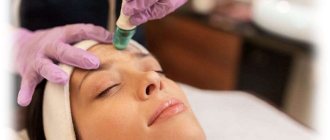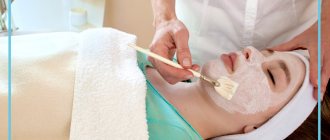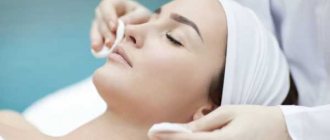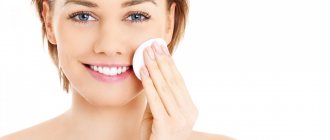From this article you will learn:
- Types of all-season facial peels
- Indications and contraindications for the use of all-season peeling
- Skin care after all-season facial peeling procedure
Properly selected all-season facial peeling helps to cope with such a problem as the ban on cleansing procedures in the summer. All women who take care of themselves face it. The fact is that in summer the epidermis is exposed to increased exposure to UV rays, which can lead to unpredictable results due to peeling.
After cleansing procedures, the skin is very sensitive, and active ultraviolet radiation can cause spots or dehydration. But this does not mean at all that in the summer you will have to deny yourself a trip to a cosmetologist. You just need to choose the right all-season peeling to enjoy healthy and glowing facial skin all year round.
PROFESSIONAL FACIAL PEELING WITH ACIDS from BELITA
Skin is a living organ. Skin cell renewal is a dynamic and continuous process. Over time, the speed and efficiency of skin regeneration decreases. One day we discover that our skin no longer looks soft, fresh and elastic. We are beginning to realize that our age and lifestyle have a merciless effect on the condition of our skin. Discoloration, sagging, open pores and dullness are early signs of the physiological process of aging.
But why apply an aggressive substance to the surface of the skin?
Chemical solutions are used to provide a controlled aggressive effect on the upper layers of the epidermis. The acid peel procedure is quite flexible and can be adjusted depending on the characteristics of the formula. In other words, depending on the level of acidity and controllability of the effects of the acids used or their combinations on the skin. Skin aging triggers many different processes, some of which have already been mentioned above. Consequently, delays in the cell renewal process and deterioration in skin quality lead to the fact that the upper layer of the epidermis, the so-called stratum corneum, thickens due to the accumulation of old keratinocytes, corneocytes (hornocytes). Under this layer of skin, which gradually thickens, the process of thickening the epidermis occurs.
Any peeling procedure has two general goals:
• Peeling is aimed at exfoliating
dead skin cells, thereby removing all imperfections that occur in various layers of the epidermis: spots, violations of the keratin layer of the skin, hyperpigmentation, etc.
The deeper the acids penetrate the skin, the more problems are affected and thus removed. • Peeling and the various characteristics of the acids used stimulate the process of
cell renewal and, therefore, the process of renewal of the epidermis. New, renewed, fresh, glowing and smooth skin blooms day by day.
The result: hydration, elasticity, shine, which are characteristic of young skin.
Mature skin needs to quickly and effectively replenish what has been damaged and lost over time. This is necessary to maintain skin tone and elasticity and maintain a clear oval face. • Unfortunately, the upper stratum corneum becomes thicker, making it difficult for the active ingredients to properly penetrate this layer of the epidermis, where they are most needed. Regular superficial peeling with acids prevents the thickening of the stratum corneum, which promotes optimized movement of substances within the epidermis and allows the replenishment of structural elements that will help restore the elasticity of the face and/or body contours. • In addition to improving the cell renewal process associated with the use of acid, peeling also triggers other beneficial processes, such as smoothing wrinkles, tightening pores, and replenishing and strengthening tissue due to the long-lasting effect of collagen synthesis. Peeling is a universal weapon in the fight against skin imperfections. Peeling is part of preparing the skin for facial care using professional cosmetics at home. It helps solve various aesthetic problems thanks to optimized and deep penetration of ingredients. Moreover, regular peeling procedures will allow you to keep your skin in better condition. Acid peels are the perfect solution to provide a natural, daily exfoliation process for your skin.
The effectiveness of the acid peeling procedure depends on the following concepts:
1. Concentration
The acid concentration in the drug from 2% to 40% affects the lower layers of the stratum corneum and leads to exfoliation.
Concentrations of 40% and higher have an intense stimulating property and are indicated during a course of anti-aging procedures. 2. The pH of the drug
Ph for superficial chemical peels varies from 4.8 to 2. The lower the Ph, the higher the acid content in the solution, therefore the result of the procedure is more pronounced
3. Exposure time
For chemical superficial peels, there are two indicators for neutralization that you should focus on cosmetologists.
The objective factor is pink erythema on the surface of the skin and the subjective factor is a burning sensation in the client. During the first procedures, the skin adapts to the action of acids, so the exposure time is minimal. In the future, the exposure time can be gradually increased. 4. Type of peeling
Depending on the task at hand: rejuvenation, hydration, elimination of inflammatory elements, etc., the cosmetologist can choose a drug with certain leading properties and get the best result. For example, milk peeling helps moisturize and whiten the skin, while almond peeling clearly exhibits antibacterial properties, regulates the functioning of the sebaceous glands, removes oily shine, and accelerates the regeneration of post-acne spots.
Protocol for the procedure Chemical peeling takes place in 4 stages:
1. Pre-peel preparation 2. Peeling procedure: application of acid 3. Neutralization of acids 4. Post-peel care
Pre-peeling preparation.
MAKEUP REMOVER. SCRUBBING:
Gentle cleansing cream is the first step in the peeling procedure. Gently removes makeup and impurities without disturbing the natural balance of the skin. They soften and moisturize the skin, preparing it for the action of the following preparations of the Multi-Acid Superficial Peeling program, and is an effective means for pre-peel preparation and for adapting the skin to the action of acids. It also serves as a good preventative against the formation of inflammatory elements on the skin of the face. CREAM-EXFOLIANT is a facial scrub with soft granules and fruit acids (glycolic, lactic, citric) that continues preparation for the acid peeling procedure. A modern complex preparation for microdermabrasion. Effectively combines the action of mechanical scrubbing granules and a complex of three fruit acids that polish, renew and smooth the skin. Provides excellent results for subsequent peeling.
ACID APPLICATION:
The BELITA-VITEX line of superficial chemical peels contains 6 preparations of surface chemical peels to solve a wide range of aesthetic problems: age-related changes, hyperpigmentation, problem skin, oily shine, dry skin.
Mechanical all-season peels
The main advantage of all-season facial peels using a mechanical method can be considered the absence of an allergic reaction. In some cases, the effect on the skin is completely non-contact, but deep cleansing of the pores occurs. True, no significant changes in the structure of the epidermis are noted: the skin simply looks better after these procedures.
What methods of mechanical peeling are especially in demand?
- Ultrasonic (US) cleaning . It is carried out with an ultrasonic scrubber - a cosmetology device that produces ultrashort waves. Using a special attachment, the specialist acts with these waves on the skin of the face and décolleté, as a result of which intercellular connections are destroyed, blood flow in the epidermal layers increases, and adhesions are resolved. This peeling is recommended for:
- getting rid of the top layer of the epidermis, giving the skin a natural shine and healthy color;
- improving cellular respiration and nutrition;
- eliminating clogged pores, getting rid of comedones;
- smoothing shallow facial wrinkles, small scars, improving the relief of epithelial tissue;
- getting rid of pigmentation (spots, freckles).
Using ultrasound, you can also massage muscle tissue, normalize the outflow of lymph, and, accordingly, reduce swelling and make the skin more elastic.
- Microcrystalline (sandblasting) dermabrasion . It is a skin cleansing using aluminum oxide microcrystals. These tiny particles, falling onto the epidermis from a special cosmetology device that sprays them through a nozzle under pressure, scrape off the upper epidermal layer, free the pores from impurities, while simultaneously massaging the tissue. Magnesium oxide, sodium chloride or soda can also be used as scrubbing particles. This peeling is indicated for:
- sagging skin, loss of tone and elasticity, facial wrinkles and other noticeable age-related changes;
- scar defects of the epithelium;
- stretch marks;
- freckles, increased pigmentation;
- hyperkeratosis.
Microdermabrasion is also suitable as a means of preventing skin aging.
- Brushing (brossage) . It involves treating the face with a device with rapidly rotating attachments in the form of brushes or sponges. This all-season facial peeling helps:
- get rid of damaged epidermal cells, renew the upper layers of the skin, provide oxygen, nutrients and moisture to the tissues that are deeper;
- even out complexion, restore skin smoothness, velvety, natural radiance;
- get rid of comedones, cleanse pores;
- fight freckles and hyperpigmentation;
- make the skin more elastic and elastic, restore the structure and rejuvenate the skin tissue;
- fight small expression wrinkles, minor scars on the surface of the skin, including those that arise after acne;
- make the contours and relief of the face more toned.
There are portable brushing devices (with a round rotating brush) that allow you to do it at home. In a beauty salon, water or saline solution is supplied to the nozzles.
Recommended articles on the topic:
- Ultrasonic facial peeling is a pleasant and beneficial procedure for your skin
- Redermalization of the skin: all the pros and cons
- Almond peeling for the face: features of the procedure
- Gas-liquid all-season facial peeling . In this case, skin cleansing is carried out using oxygen-enriched water. A directed jet is applied to the face under pressure, which does not feel very pleasant, but is very useful. Serum is sometimes used to nourish the skin during the procedure: penetrating through the protective barrier thanks to strong pressure, it affects the middle layer of the epidermis.
- Oxygen all-season facial peeling. The skin is cleansed with a stream of liquid oxygen, which has a low temperature. The procedure helps to narrow enlarged pores and make the skin texture even. This cleansing immediately gives the face a fresh and well-groomed appearance, but it takes 5 to 10 sessions for the result to be significant. The disadvantage of the procedure is that it is expensive, so it is not very popular.
Each of these peels can be used to prevent aging or as intensive care. But it is better to make a choice in favor of a specific procedure after consultation with a qualified cosmetologist, especially if there are any skin problems that need to be solved first.
Almond peeling 30% pH2.
Mandelic acid has a large molecule and is characterized by anti-inflammatory and antibacterial properties. It also exhibits moisturizing, antioxidant and rejuvenating effects. Almond peeling is one of the preferred peelings among cosmetologists, as it is easy to perform, has a short post-peeling period, is well tolerated by patients with sensitive skin, is the drug of choice for those intolerant to glycolic acid, and is the drug of choice for acne. This peeling is also recommended for correcting the first signs of aging. and NEW:
Chemical all-season peels
Recently, the popularity of chemical peels has become much higher than that of mechanical (hardware) peels. This is explained primarily by the fact that chemical all-season peelings are performed easily and quickly - the procedure takes 30–40 minutes (a lunch break is enough to do this cleaning).
If the manipulations are carried out clearly and efficiently, there will be practically no marks left on the face, except for a slight redness - you definitely won’t have to change your usual rhythm of life because of this. Yes, there are some restrictions in the first days after the procedure, but they are necessary to prevent side effects from occurring.
The following cleanings are most often done using acid-based cosmetics:
- Almond peeling . Its peculiarity is that the acid used has rather large molecules - they are not able to penetrate too deeply into the skin and burn it. The action of the acid is gentle, it consists in loosening the upper layer of the epidermis, without overdrying, but with a bactericidal effect. Almond peeling is suitable for all skin types and is well compatible with other acids.
- Koy peeling. An indispensable remedy in the fight against increased skin pigmentation, since kojic acid can block the production of melanin even in small doses. Although the peeling action is delicate, it is quite effective for smoothing out fine wrinkles, in particular crow's feet. Helps reduce bruises and bags under the eyes, accelerate collagen synthesis, and increase turgor.
- Azelian peeling . It is considered one of the softest. Practically does not cause negative side reactions on the skin. It has antibacterial, anti-inflammatory and sebostatic effects. Indicated primarily for very dry, thin skin with increased sensitivity. Sometimes (in the treatment of dermatitis or acne), azelian peeling is carried out weekly in long courses.
- Salicylic peeling. Has powerful anti-inflammatory and antibacterial effects. Suppresses the activity of the sebaceous glands, dries out the skin, but not much. It is one of the most popular treatments for acne and pimples in teenagers. In the summer, it is indicated for those with oily and combination skin types to reduce pores enlarged due to high air temperatures and sun exposure.
- Phytin, or Hollywood, peeling . Favorite procedure of the stars. After phytic acid, there is almost no peeling on the skin, or it is very light. However, a smooth, velvety and fresh appearance as a result of cleaning is guaranteed. You can do it even on the eve of important events, without fear that redness will remain on your face.
- Milk peeling . A very effective procedure, which has a mild universal effect - moisturizes the epidermis, promotes the natural production of collagen and hyaluronic acid. It is often used as part of professional combination products due to its bacteriostatic effect and the ability to maintain the acid-base balance of the skin.
- Ferulic peeling . Cleansing with this fruit acid is well tolerated even by sensitive skin. As a rule, the drug is used in combination with gluconic or mandelic acid, less often - in its pure form. All-season peeling for the face, neck and décolleté with ferulic acid is considered gentle, however, it perfectly cleanses and refreshes the skin.
Attention: in summer, any of the chemical peels should be used in a concentration not exceeding 25% when carried out in a salon, and no more than 15–20% when used at home. A substitute for chemical peeling can be the regular application of creams or gels containing mandelic or glycolic acid (2–5%). Course – 30 days, frequency of use – 2-3 times a week.
Tonic gel Neutralizer (ph 8.5-9.0)
Designed to neutralize the effects of acids. Urea is added to the drug formula as a neutralizing agent. The gel form of the drug is convenient and economical to use. The drug not only neutralizes the effects of acids, but also has a caring aspect, since urea is part of the natural moisturizing factor (NUF) of the skin. A mild tonic gel is designed to stop the action of fruit acids and prepare the skin for the completion of the peeling procedure. Soothes, protects and strengthens the skin.
Post-peeling care: cosmetics after facial peeling with acids
The final result of the course of procedures largely depends on how the client takes care of his skin in the period between chemical peeling procedures. You should strictly adhere to the cosmetologist’s recommendations and choose home care products that are specially created for this period and are fully capable of performing the following tasks: reducing/eliminating subjective discomfort, preventing possible complications, anti-inflammatory therapy, antioxidant protection, stimulating recovery processes. Post-peeling protective face cream SPF 50, restoring cream-mask after dermabrasion and chemical peeling effectively restore the barrier function of the skin and pH, actively moisturize, nourish, saturate the skin with vitamins and minerals, and provide a protective effect against adverse external environmental factors. A soft triple action cream: completes the care procedure, soothes the skin and effectively protects it from sun damage. Absorbs quickly and does not leave a greasy sheen. Prevents photoaging, enhances the protective properties of the skin, softens and nourishes it.
PEELING COURSE: how often should you peel your face with acids?
To achieve lasting results, a course of superficial chemical peels is necessary. As a rule, it is recommended to carry out such procedures 2 times a year in the autumn-winter period. The recommended step between procedures is 7-10-14 days and depends on the condition of the skin, age, regeneration process for each client and the type of chemical peeling. However, almond peeling is an all-season peeling, which allows its use regardless of the time of year. To prevent the occurrence of hyperpigmentation, it is extremely important to use products with an SPF factor year-round, during the period of post-peeling care. With proper management of the client throughout the course and following simple rules in the period between procedures, a high aesthetic result and achievement of the set goals from the procedure are guaranteed!
Skin care after all-season facial peeling procedure
To get the maximum effect from peeling, you must follow the recommendations for further skin care:
- do not peel off flaky crusts;
- for morning and evening washing, you should use moisturizing foams that have neutral acidity (in the case of medium or deep cleansing, washing is allowed only on the third day);
- Do not rub your face after water procedures - only gently blot with a rough towel;
- You must definitely use face creams with panthenol, retinol, lanolin;
- the body needs more rest, you should walk in the fresh air more often, not forgetting to protect the skin from dust, hypothermia and exposure to the sun (before going outside, the skin must be treated with a product with a protection factor (SPF) of at least 35);
- It is better to refrain from going to the sauna and solarium;
- You should at least temporarily exclude alcohol and spicy foods from your diet.
Remember: decorative cosmetics can only be used a week after peeling, not earlier!
Judging by the responses, many patients do not have a clear idea of what all-season facial peeling is. It is a very common belief that this is a single procedure. In reality, we are talking about a variety of exfoliation methods that can be used even when it is sunny and hot outside. It is better to choose the best option for yourself with the help of a qualified cosmetologist.
In order for the results of all-season peeling to be pleasing, it is important to constantly protect the skin from sun rays with special cosmetics with SPF 30 or more (for 3-4 weeks after the procedure), not to sunbathe during the period of maximum sun activity, as well as in a solarium, and to avoid burning. All sunscreens and sprays must be applied to the skin several times during the day, because even waterproof products are gradually washed off.
Why clients choose Veronika Herba Beauty and Health Center:
- This is a beauty center where you can take care of yourself at a reasonable cost, while your face and/or body will be treated not by an ordinary cosmetologist, but by one of the best cosmetologists in Moscow. This is a completely different, higher level of service!
- You can receive qualified help at any time convenient for you. The beauty center is open from 9:00 to 21:00, seven days a week. The main thing is to agree with your doctor in advance on the date and time of your appointment.
Sign up for a consultation with a specialist by phone +7 (495) 085-15-13
, and you will see for yourself!
